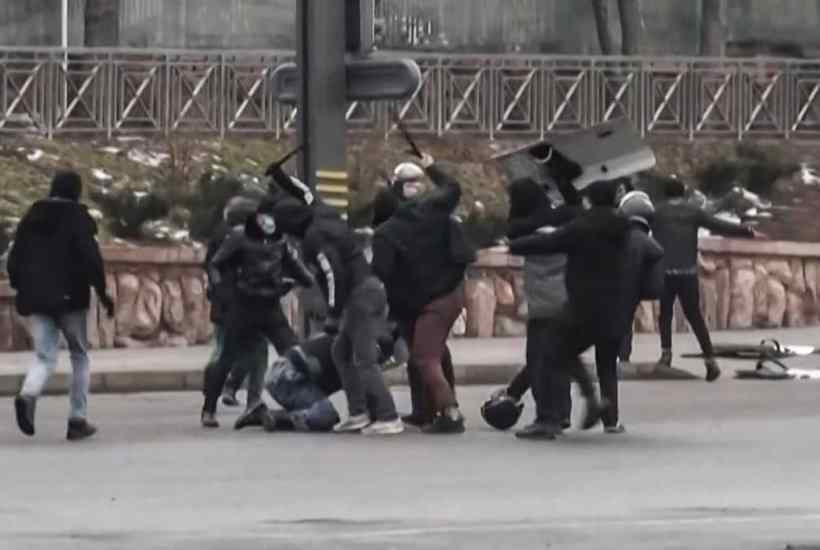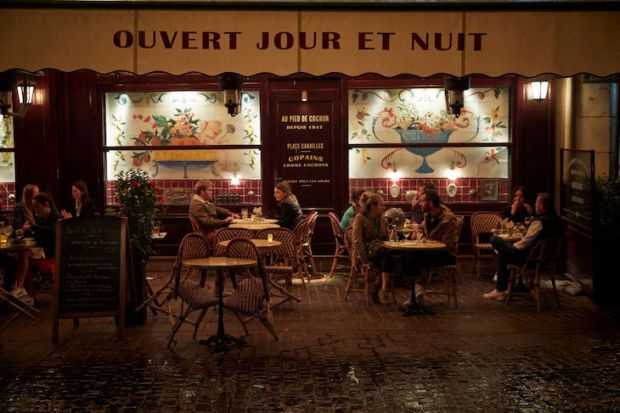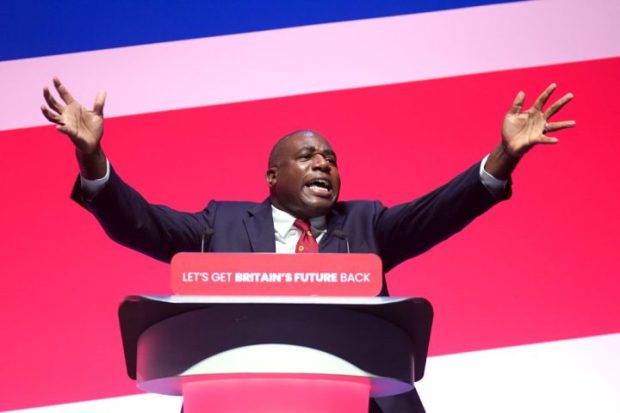Russian troops have now arrived in Kazakhstan in a desperate bid to halt the tide of violence that has swept the country. Their arrival is a last resort for the country’s president Kassym-Jomart Tokayev as he fights to maintain his grip on power. But he isn’t the only leader who is eager to quell this unrest: Vladimir Putin will be deeply troubled by what events in Kazakhstan mean for his own leadership.
Fuel price rises were the immediate trigger for the unrest in Kazakhstan, but the rapid spread of these protests – from the west of the country, close to Kazakhstan’s oil fields, to numerous towns and cities – shows that something much more fundamental is to blame for the disturbances that could well topple the regime of president Tokayev. To put it bluntly: the patience of many Kazakhs has run out.
The limited state of emergency declared by Tokayev has been extended from just a few areas to the whole country. Government buildings have been set ablaze in Kazakhstan’s biggest city and its former capital, Almaty, where large numbers of young men shouting anti-government slogans have clashed with riot police. At least 18 people have been killed; hundreds have been injured. Protests broke out, too, in the new capital, Nur-Sultan (formerly Astana), and at least one statue of the former president and ‘leader of the nation’ Nursultan Nazarbayev was toppled.
The speed with which these demonstrations has spread is astonishing, particularly in such a vast and sparsely populated country. Almaty, in the south east of the country, is about as far as it is possible to be from the oil towns of the west, while Nur-Sultan is central and further north. For unrest to erupt across such a wide area suggests either some serious advance planning or a widespread sense of grievance just waiting for a trigger.
Despite the scale of the protests, president Tokayev is not a man eager to make concessions. The arrival of Russian paratroopers came after an emergency request for military help was made to the Russian-led Collective Security Treaty Organisation. Troops from other former Soviet states could soon join them, though how many and on what conditions is not clear.
Their presence could mean that, by consent or force, order is soon restored. Kazakhstan would then continue its somewhat fitful post-Soviet course of development, and the transition from Nazarbayev’s long authoritarian rule – he led Kazakhstan from 1990 until his formal retirement in 2019 – is finally complete. Yet there is no guarantee of a peaceful denouement, or that what began in Kazakhstan stays in Kazakhstan. The origins of the New Year protests may indeed be local, but there could be big geopolitical implications.
Since the collapse of the Soviet Union 30 years ago, the newly independent Central Asian states have been generally quiescent, retrenching themselves in their region and rediscovering their culture and history. Kyrgyzstan was an exception in experiencing a series of coups. But the others – even the most autocratic, such as Turkmenistan and Uzbekistan – mostly managed the transition from their Soviet-era leaders to the next generation, without the widely-forecast upheaval. Kazakhstan conformed to that pattern.
Instability in Kazakhstan is particularly bad news for Russia. Desperately trying to fend off the loss of its influence in Ukraine, Moscow has largely been able to take a benign relationship with Kazakhstan (which has a border with Ukraine) for granted. Russia continues to use the Soviet-era space base at Baykonur to launch its spaceships and satellites and shares energy technology.
Strategically, it can ill afford to lose what has been a predictable buffer on its southern border with Asia. Unrest in Kazakhstan could bring Chinese influence, which is on the rise, that much closer. The risk of further violence in Afghanistan now Western forces have withdrawn only complicates the regional picture.
When there has been unrest in Central Asia over the past 30 years – the ructions in Kyrgyzstan and various inter-ethnic disputes – Russia has largely remained aloof, even when governments have asked it to intervene. Given the long border and the relatively large ethnic Russian minority, however, unrest in Kazakhstan could be another matter. It is not so obvious that Moscow would remain a spectator as its large neighbour was wracked by disorder of a political or religious variety that could all too easily spill into Russia.
And while most of the states in the former Eastern bloc have been finding their place in Europe, life for those that formed part of the Soviet Union has been more volatile. In the past three years, Armenia has experienced a ‘velvet’ revolution; violence has flared between Armenia and Azerbaijan over the disputed territory of Nagorno-Karabakh. War simmers on in the east of Ukraine, and in Belarus, Alexander Lukashenko has resorted to violence, repression and an artificial migrant crisis to keep his hold on power. Each of these conflicts in its own way is an after-shock from the sudden Soviet collapse. Those shocks, it would appear, have now extended to Kazakhstan.
At best, the definitive end of the Nazarbayev era could bring more accountable and less corrupt government and complete the post-Soviet transition. At worst, it could lead to the whole region being consumed in the flames of ethnic and religious war. Or it could simply mean a repressive marking of time, as in Belarus, before a new spasm produces a new order. But where Kazakhstan sits, between Russia and China, and the Middle East and South Asia, ensures that any popular discontent that threatens the regime is likely to be more than a little local difficulty. It will reverberate across the region as a whole.
Got something to add? Join the discussion and comment below.
Get 10 issues for just $10
Subscribe to The Spectator Australia today for the next 10 magazine issues, plus full online access, for just $10.



















Comments
Don't miss out
Join the conversation with other Spectator Australia readers. Subscribe to leave a comment.
SUBSCRIBEAlready a subscriber? Log in